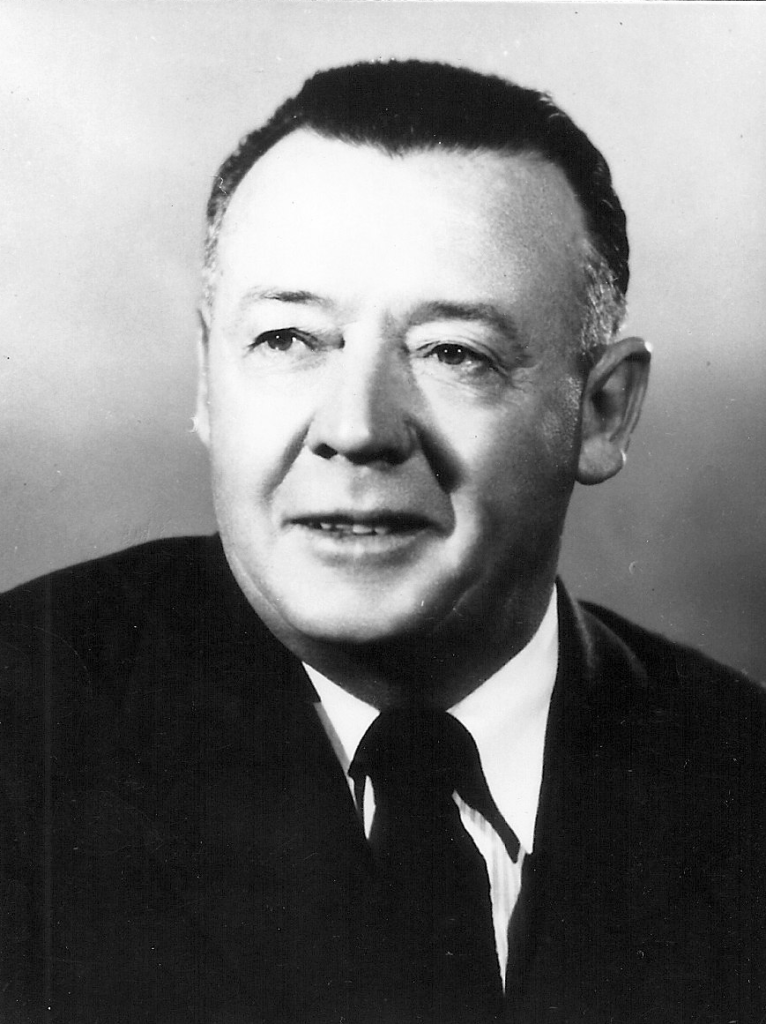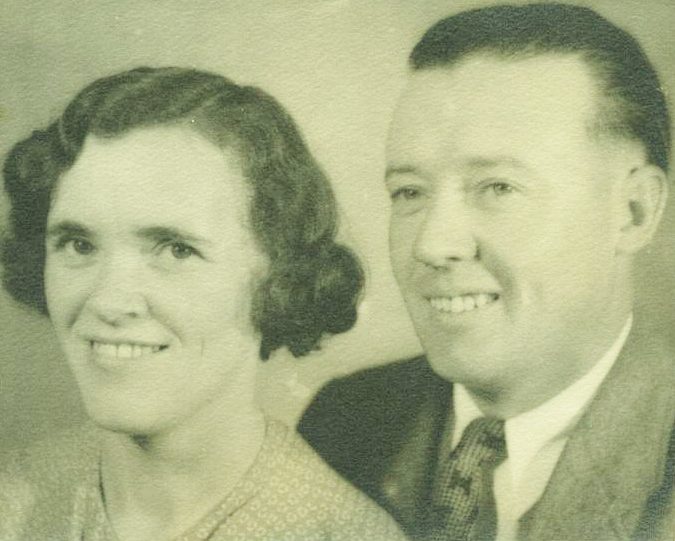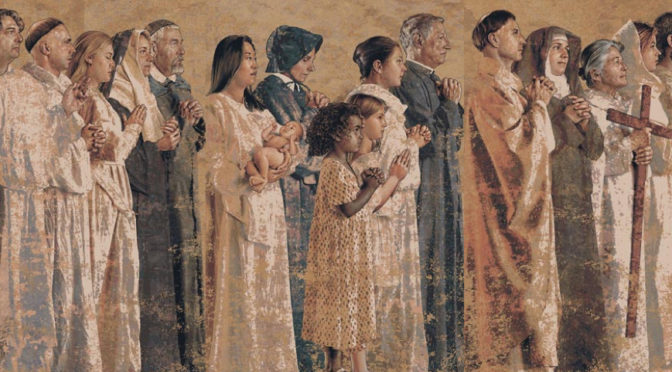 A glimpse into the life of Abraham Harder
A glimpse into the life of Abraham Harder
January 14, 1903 – November 8, 1996.
We are here today to honor a man whom we will each remember somewhat differently. Some will remember him as a Mason; others as a longtime Chevron employee; some will remember him as a neighbor; perhaps some may remember him as a scoutmaster or a woodsman; probably only one (his brother Bill) remembers him as a baseball player. Many others will remember him as a brother, a father, an uncle, a grandfather, and a great-grandfather. He was all these things and more.
Abraham Harder began his life in 1903 in the cold of a northern winter, in Butterfield Minnesota, above a dry-goods shop owned by his father. They were Mennonites, part of a group who had come over from Russia, searching for the freedom they had sought there after leaving what is now Germany.
He was one of twelve children of Jacob Harder and Susan Dick. There were four girls and eight boys — nearly enough boys for a baseball team of their own. And they played baseball — Abe was pitcher. The family moved to Saskatchewan, Canada in 1907 where they farmed — mostly wheat — for the next fifteen or so years. Not far away lived a girl named Marion who would become very important in Abe’s life, but they were not to meet until many years later in a different part of the world.
After his pioneering brother Ben convinced the family that “California is the place you oughta be” they loaded up their goods and headed for the San Joaquin Valley. The parents and youngest brothers Dave and Henry and unmarried sister Helen traveled by train. But the four older unmarried brothers (Pete, John, Abe and Bill) drove the family Model-T from Saskatchewan to California — in November of 1922! Now the route they took was not what I would expect for that time of year. They crossed the Canadian Rockies to British Columbia and then came down through Washington and Oregon into California. They were told at Banff, Alberta that they were the last car to be let through that year, because there was too much snow. The roads were mostly dirt (I guess mud at that time of year) until they got into California. And they had to cross the Columbia River on a ferryboat.
The family got a farm near Fresno, but Abe found work with Southern Pacific Railroad in the yardmasters office in Bakersfield — and as a baseball player (pitcher) with the company’s semi-pro team. In August of 1924 he got a job with Standard Oil of California (now Chevron) in Taft — again as a baseball player. In the off-season he worked as a roustabout and well puller. It was in Taft that he met Marion. In June of 1925 he transferred to Inglewood; Marion followed, and they were married in September 1925.

Abe worked his way up from a roustabout and mechanic to head gasoline plant operator by 1930. This included a move to Long Beach, where he has lived (except for a 3-year stint as district supervisor in Ventura) ever since. In 1966, he retired as District Supervisor of the Natural Gas and Gasoline Department of the Coastal District, Long Beach, Seal Beach, and Huntington Beach area. Not bad for a baseball player! Along the way he studied related disciplines such as physics, physical chemistry, steam power, electrical engineering and so forth. His electrical and engineering improvements at various plants earned him an unusual plaudit; upon his retirement, he was praised as one of Chevron’s finest engineers — yet he was never an engineer.
Abe was involved in outside activities as well. During the depression and war years, he and Marion were active in church work, boy scouts and girl scouts. They were instrumental in starting the first Cub Scout pack in North Long Beach. For a time, during a shortage of scoutmasters during World War II, he was scoutmaster for two troupes simultaneously.
After son Jim and daughter Lois each were married in 1946, Abe and Marion sought other outlets for their service; Abe joined the Masons. He was lodge master of Monte Vista lodge in 1957. He rose to the rank of 32nd degree Scottish Rite; although I’m not sure what that means, you Masons will know. After his retirement in 1966, he was a regular fixture at the Retired Oilmen’s Club, and the Petroleum Production Pioneers, and more recently joined the Lions’ Club.
Having been raised on a farm, Abe was an accomplished “jack-of-all-trades.” He designed his own house, which he had built in 1939 to 1940. At least two other houses (one in Ventura, and one in Delano) were built after his house plan. And when work was needed, whether it was putting in irrigation pipe at the farm, or plumbing, or electrical, or building a shed, or reroofing one house or another, it was usually “do-it-yourself.” And if it was not perfect, well at least, as he said, “it isn’t a piano.”
But Abe’s two great passions were hunting and baseball. I’m not sure which ranked higher. After the Dodgers moved to Los Angeles in 1958 he was a devoted fan. I think he sometimes got as excited as Tommy Lasorda. If a Dodgers or Angels game was on, the radio was on, no matter what else was happening.
And hunting — nothing got in the way of hunting! Only Marion’s disabling stroke in 1985 interrupted his yearly trek to the mountains of northern California. After she passed on in 1988, he returned to it, although with not much luck. He seemed able to recount every deer he ever got, and the take was considerable — plus two bears! I am extremely grateful to have been able to be with him his last few days “on the mountain” just this last September. We saw no deer, but he was sure pleased to be able to be there.
For me, his passing was too soon. Although I have lived nearby for my entire life, there was more I wanted to share. I wanted him to be there when I build my house. I wanted him to be there when my kids have kids. Maybe he will be — maybe he is.
Eulogy by Ken Piper, November 12, 1996.


